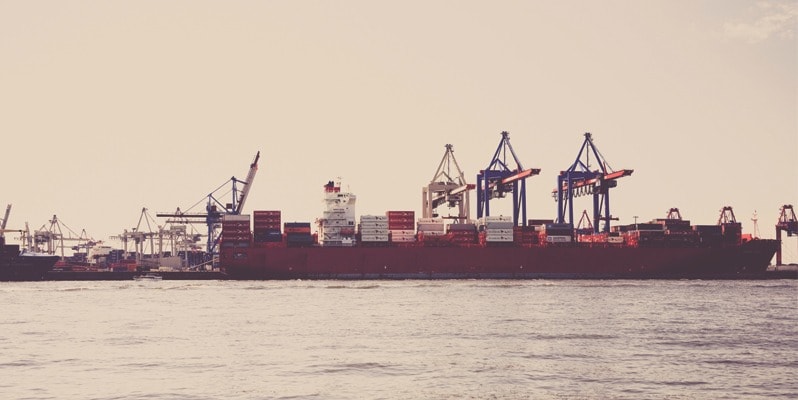
In Australia, the logistics and supply chain industry is constantly advancing to fit the needs of a growing consumer base. Staying up-to-date with new and emerging industry trends will show you how to best utilise which supplies and when. You’ll also learn how to provide the best service possible while still generating healthy profits.
Technological trends affecting the supply chain industry in Australia
It’s becoming hard to imagine a part of our lives that hasn’t been integrated with technology. Entire corporations would be lost without embracing technology in their day-to-day operations.
Technological advancements continue to set a new standard for customer service and manufacturing, which means logistics and supply chain providers must constantly adapt to remain competitive. z
Here are six new and still emerging innovations that are becoming more prominent in logistics management and supply chains:
- Robotics serves to assist with automation solutions and add stability to staffing. Robotics increases workforce stability, job satisfaction and productivity while reducing recruitment needs.
- 3D printing is becoming more applicable and helps in enabling autonomous logistics.
- The internet of things (IoT) can help you collect important data to generate targeted analytics, allowing you to isolate key efficiencies and inefficiencies within operations.
- Augmented reality and artificial intelligence (AI) takes large amounts of data to enhance systems, planning and efficiencies. This also includes machine learning capabilities – how it can dissect statistical data and continually improve the accuracy of its output.
- Cloud-based technologies function in the supply chain on the retail side and in omni-channel business models. Examples of valuable uses include outlets, pop-ups, e-commerce sites, social and mobile sites, catalogues, flash sales, and other seasonal and single-use channels.
- Anticipatory logistics utilises volume forecasting and predictive capacity utilisation. This is a whole new sub-industry in cloud logistics that includes logistics as a service (LaaS), logistics mall, supply chain-as-a-service (SCaaS), and on-demand supply chain management.
The digital space is constantly improving efficiencies, security, and quality. This constant growth in technology also makes it important to continue developing competencies and experience within your team so that you can leverage these advancements.
How security impacts supply chain management
As technology advances, privacy has never been more important. The huge variety of potential applications exposes the supply chain to web fragmentation and cyber-attacks. This forces managers to constantly look for solutions in web security, privacy protection and cryptography, further improving risk management systems and processes.
Confidentiality is also important when attempting to forge business relationships and in tracking and managing the route of moving orders. Luckily, as technologies improve, advancements in security are not far behind, with solutions like increased data protection and third-party risk assessments. This kind of interconnectedness encourages advanced security monitoring by both parties, without compromising the speed and accuracy of business practices.
Your Career in Supply Chain Management
Do you want to learn more about supply management and logistics skills employers demand, emerging job roles and salaries, and recent industry insights?
Discover your career in supply chain management.
SUPPLY CHAIN CAREER PAGE
How is e-commerce affecting the supply chain?
According to the World Bank, over half of the global population lives in cities. This is only expected to grow, doubling the current urban population by 2050. The growth of urbanisation and the enormous global shift toward megacities brings incredible challenges to logistics management and the supply chain industry.
As cities grow, consumers want the convenience of online shopping over the bustle of retail. Since COVID-19, eight out of 10 Australian households now shop online. Not only are more Australians shopping online, they are shopping online more frequently – one in seven Australian households make weekly online purchases.
The shift towards a more digital consumer will encourage the industry to enable multimodal urban deliveries from fast trains to locker-boxes and other innovative distribution points. It’s important to find solutions to manage congestion and distribution – better known as the last mile or the final leg of the product life-cycle.
Sustainability trends in supply chain management
With environmental pressure mounting on the entire industry, investing in sustainable practices within a sustainable business model is increasingly important. Trends such as ‘innovating to zero’ and the ‘circular economy’ are becoming more popular within the industry and among all types of consumers. Staying on top of sustainability demands allows your business to remain relevant and can positively impact the business’s future success.
Job opportunities in the supply chain industry in Australia
Based on these trends, the job market remains positive. The industry trend is showing a lean towards specialists over generalists. However, some high-paying, entry-level positions like delivery drivers and warehouse labour continue to be in demand in the industry.
These key supply chain positions have scope for advancement as these trends grow:
- Distribution Managers: Plan the transportation, storage, and distribution of products while organising IT systems, negotiating contracts and managing staff.
- Logistics Planners: Strategise the entire life cycle of a product, including shipping and receiving goods.
- Supply Chain Engineers: Optimise the supply chain by finding new ways to improve the production and transportation of products while maintaining relationships with vendors and distributors.
- Quality Management: Manage and meet product standards and expectations.
- Buyers/Purchasing Agents: Evaluate, research, negotiate and select products that a company will sell, and balance budgets with emerging market trends.
What do these supply chain trends mean for you?
Growth! These trends bring more opportunities for growth within the industry. Now is the perfect time to upskill your qualifications and take the next step towards a rewarding and challenging career in supply chain management.
With an ever-growing market, logistics managers are becoming more important as they ensure consumers worldwide receive what they want, when and how they want it. An online Diploma of Logistics (TL150221) will refine your existing knowledge and give you the real, working skills you need to advance your career and step into an exciting logistics role.
Discover your career in supply chain management
Explore courses designed to help you elevate your career!
Prepare for a career in logistics or supply chain management and learn a wide range of skills to help you break into the industry.
View courses






